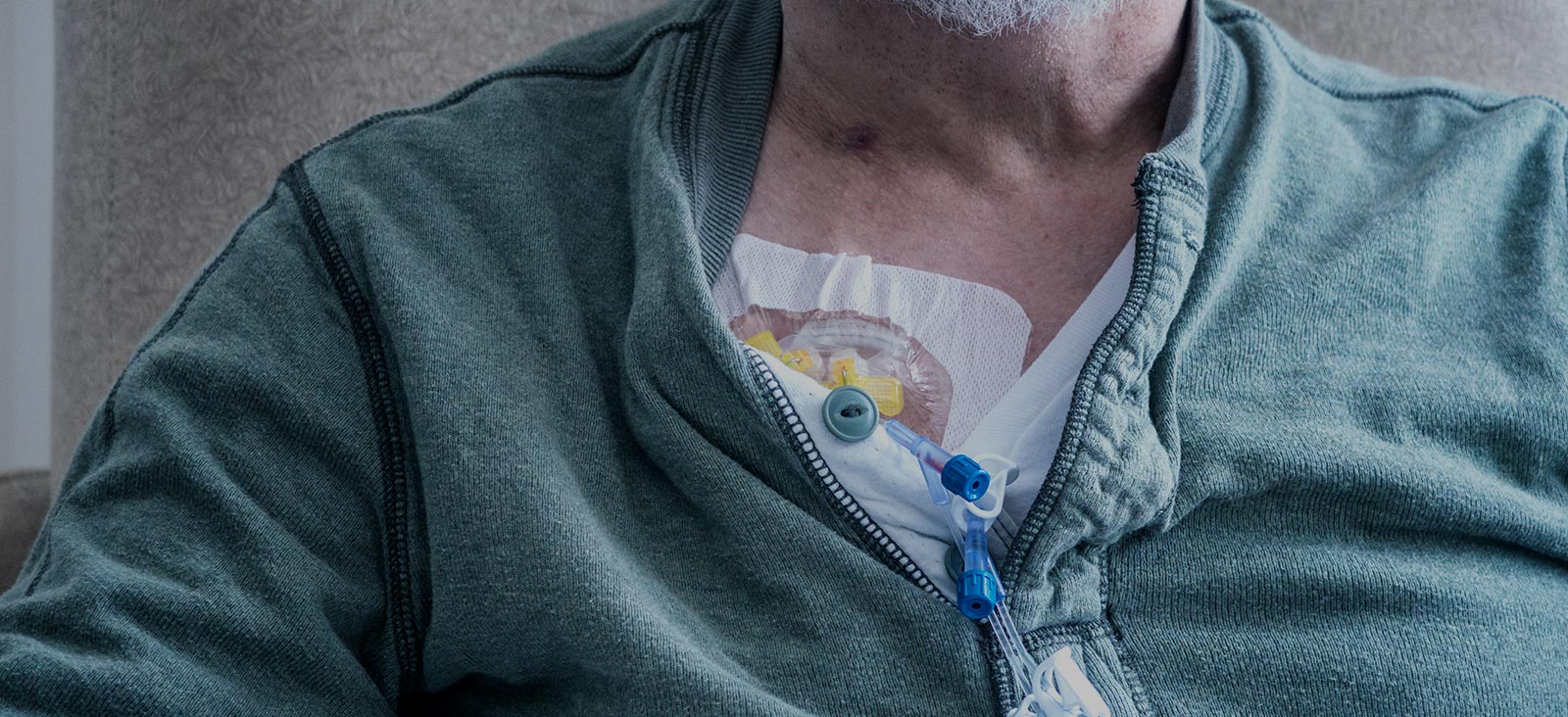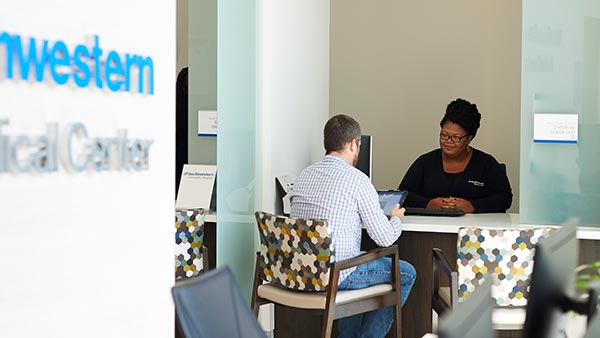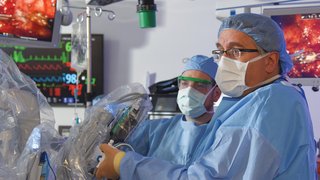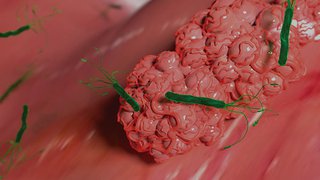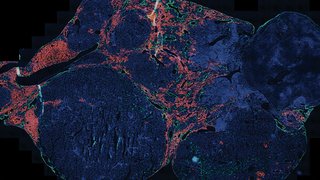Adjuvant Chemotherapy for Stage III Colon Cancer in Healthy Patients
September 18, 2020
Clinical Trials at UT Southwestern
As an academic medical center, UT Southwestern offers clinical trials that give eligible patients access to the newest therapies. Learn more about clinical trials at UT Southwestern.
Researchers at UT Southwestern set out to understand the underuse of adjuvant chemotherapy by observing the rate of use in ideal candidates, identifying reasons for omission and socioeconomic factors associated with adjuvant chemotherapy use, and observing patient outcomes.
Previous studies have firmly established the efficacy of adjuvant chemotherapy for patients with pathologic, stage 3 colon cancer; however, underuse of adjuvant chemotherapy in this population has been observed in the U.S. [1-2] When examining barriers to use, age has been recognized as a key factor impacting the decision to choose chemotherapy in the adjuvant setting, but other contributors remain largely unknown. [3] Identifying and characterizing the reasons for adjuvant chemotherapy omission is necessary to ensure optimal outcomes for healthy patients with stage 3 colon cancer. [2]
Syed Kazmi, M.D., is an Assistant Professor in the Department of Internal Medicine, Division of Hematology-Oncology, at UT Southwestern Medical Center, and Eugene P. Frenkel, M.D. Scholar in Clinical Medicine. His clinical practice is focused on the treatment of gastrointestinal cancers. Dr. Kazmi and his research team are interested in several aspects of clinical research, including patient-centered outcome research, quality assessment, and development of strategies to optimize delivery of cancer care to underserved populations.
“We use large national databases to answer questions about the utilization of different treatments for colon cancer. We’re trying to answer questions that arise in clinical practice, and we’re following patients over time to identify factors that may affect outcomes in colorectal cancer,” Dr. Kazmi says.
“Community oncologists can benefit by referring their patient for a second consultation with UT Southwestern. We also have unique access to clinical trials for advanced-disease patients.”
Syed Kazmi, M.D.
Identifying Factors Associated with Adjuvant Chemotherapy Use
In collaboration with Dr. Kazmi, Mohsin Soleja, M.D., a second-year hematology-oncology fellow in the Department of Internal Medicine at UT Southwestern, recently presented results of a study that investigated factors associated with underuse of adjuvant chemotherapy at the 2020 ASCO Annual Meeting. The retrospective analysis reviewed 55,237 patients with stage 3 colon cancer who were considered “ideal candidates” for adjuvant chemotherapy, with specific criteria, such as age under 65 years and Charlson/Deyo Comorbidity Index ≤ 1. Data were collected from the National Cancer Database (NCDB) between 2004 and 2015. A multivariable logistic regression model was used to demonstrate the relationship between adjuvant chemotherapy and other factors, and Kaplan–Meier and Cox regression methods were performed to estimate overall survival. [2]
After analysis, the team found that 49,046 patients met the specific criteria of an ideal candidate, and of these, 88.5% received adjuvant chemotherapy and 11.5% underwent surgery alone. The most common reasons for adjuvant chemotherapy refusal were no reason given (54.2%), patient/guardian refusal (26.7%), physician recommended against (9.3%), patient died (3%), and unknown (6.7%).
Within the ideal-candidate population, uninsured status, male gender, non-Hispanic Black ethnicity, comorbidity score of 1, and distance greater than 50 miles to the treatment center were factors associated with lower use. [2]
“Multivariable analysis showed private insurance status and proximity to cancer center as prominent factors associated with adjuvant chemotherapy use,” Dr. Kazmi says.
In addition, patients who received adjuvant chemotherapy had better survival compared with those who underwent surgery alone, with a 23% absolute risk reduction in five-year mortality. [2]
Dr. Soleja says, “My research interests are in optimizing care delivery and how we can provide cancer care in a more effective manner so that large groups of patients will benefit. In patients with stage 3 disease, we know there is a substantial benefit for chemotherapy. Choosing chemotherapy is a pretty significant decision, and we have to understand why certain patients are not choosing to receive it.”
Future Research
Looking ahead, the omission of chemotherapy in this population remains a problem and is in part due to patient refusal. One major limitation of the NCDB dataset was that it did not capture reasons for omission of adjuvant treatment. Ultimately, further studies are needed to better characterize most prominent factors associated with adjuvant chemotherapy use in patients with stage 3 disease.
“To address these barriers, patient education is very important,” Dr. Soleja says. “We need to ensure that patients are informed about the benefits of receiving chemotherapy. Addressing barriers for uninsured patients is also important.”
Dr. Kazmi and his team are continuing to study the treatment patterns of colorectal cancer patients and anticipate his research will better optimize therapy in the future. In collaboration with UT Southwestern’s basic science faculty, he also hopes to discover novel therapies for patients with colorectal cancer.
As one of the few institutions recognized by the National Cancer Institute as a Comprehensive Cancer Center, UT Southwestern Harold C. Simmons Comprehensive Cancer Center offers patients unique access to clinical trials, with potential inclusion into studies not available elsewhere. [4]
“Having a consultation with us can allow for a more multidisciplinary approach for colorectal cancer patient assessment,” Dr. Kazmi says. “At UT, we have a team of national leaders in surgical oncology, medical oncology, and radiation oncology, and offer state-of-the-art technology. Community oncologists can benefit by referring their patient for a second consultation with UT Southwestern. We also have unique access to clinical trials for advanced-disease patients.”

